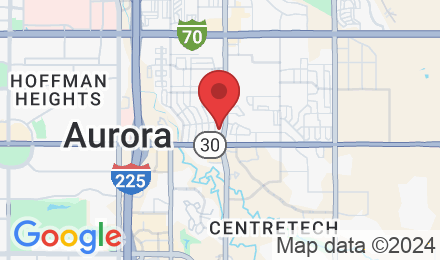Experience Remission from Depression, with TMS.
TMS (transcranial magnetic stimulation) is designed to help people who suffer most from depression to start feeling better again. As a leading provider of TMS therapy in Colorado, Aurora Mental Health & Recovery offers a safe and FDA-approved treatment that utilizes magnetic pulses to target the root cause of depression. This potent therapy is both highly effective and eligible for insurance coverage, and may be of great benefit to you. To learn more and schedule a consultation with our psychiatrists, click the link below.
4.8 Million Treatments Administered
82% of Patients See Improvement
65% of Patients See Full Remission
What is TMS?
Transcranial Magnetic Stimulation uses strong, magnetic pulses distributed through a coil to regulate the neural activity of brain structures associated with depression.
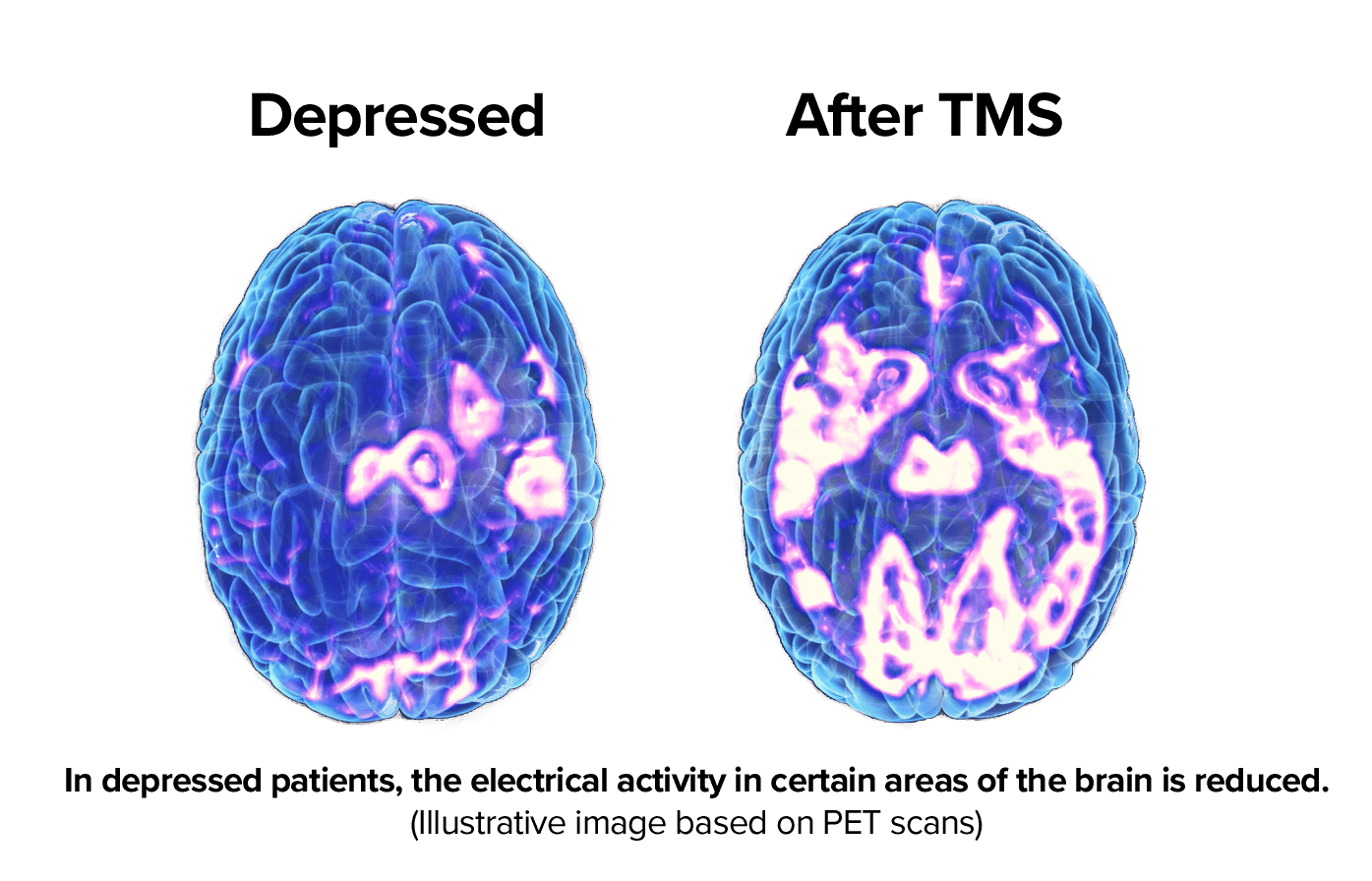
No Systemic Side Effects
While you may feel slight pressure on top of your head, most patients adapt to the sensation after just a couple of sessions.
Medication Free
Rest assured, you do not have to start a new medication regimen throughout TMS.
21 Day Difference
An analysis of 1,753 patients showed that the average patient achieved a sustained response after just 16 treatments.
Hear From Our Patients
Renee
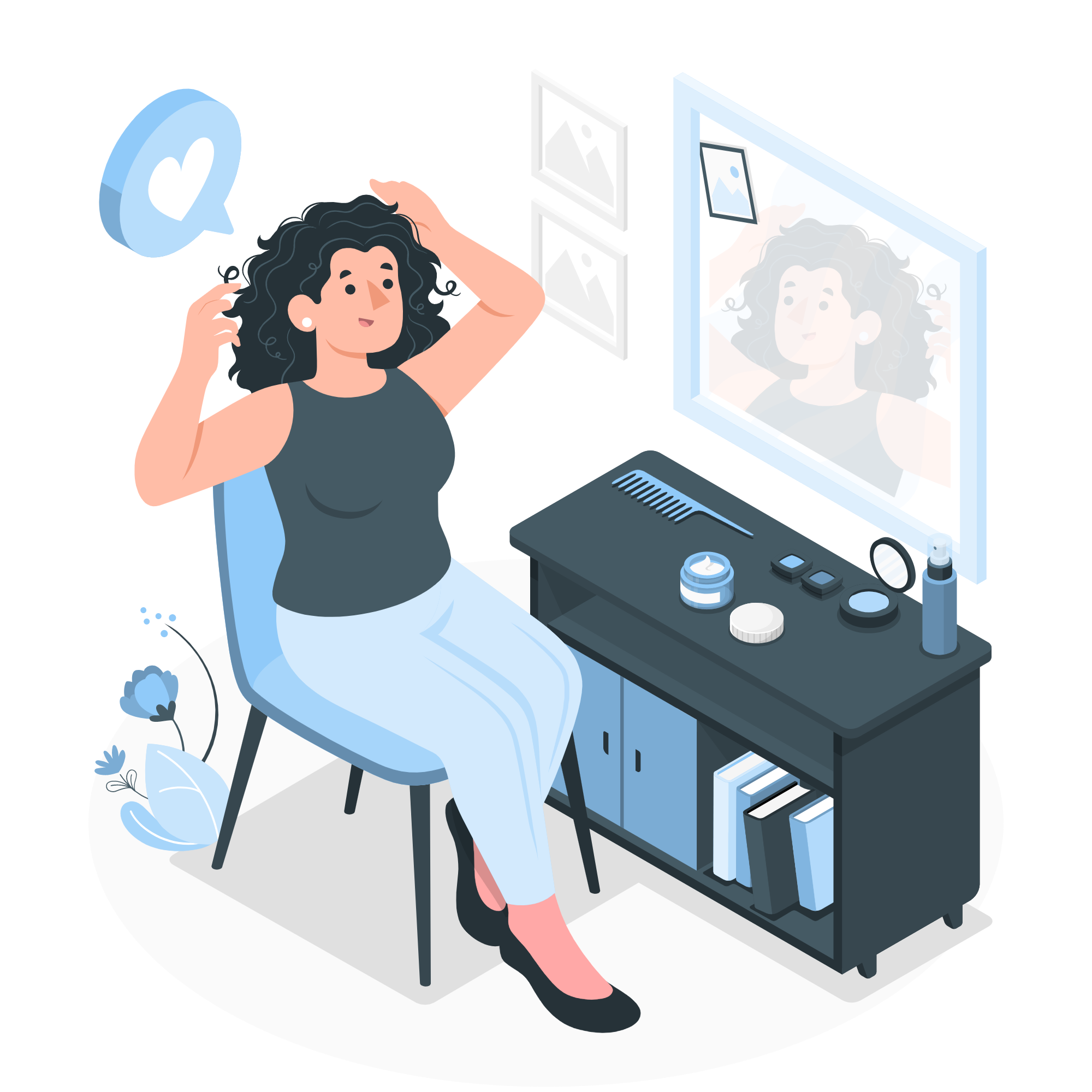
"Excellent work by all involved in the care and treatment of their consumers and staff thank you for being so trauma informed and protecting our community from the dangers of the world around us today. Best mental health care services since I have been getting services Thanks to you all for your hard work"
Jason

"Staff is awesome! Took away the anxiety of the experience. Warm, welcoming and clean environment I recommend them highly"
Angela
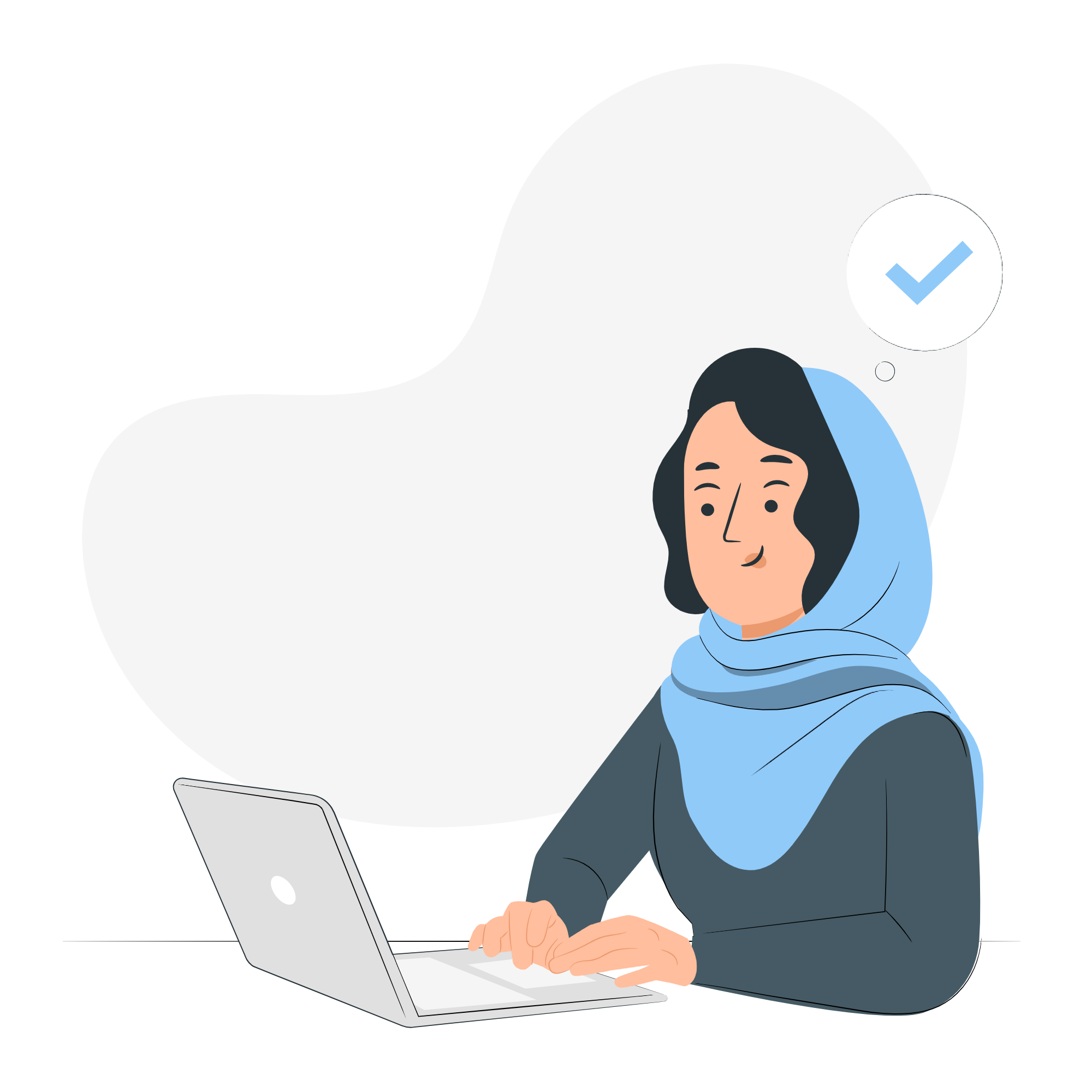
"Both Amanda and Ken helped me at a point when i thought there was no help left for me so once again i want to thank them and tere entire teams employed here!! You guys are incredible and i do not know what i would do without you!! keep up the awesome work you are doing to help myself and others like me that have a hard time dealing with life on a day to day basis!! Thank you!!"
Real BrainsWay Stories
Highly Effective
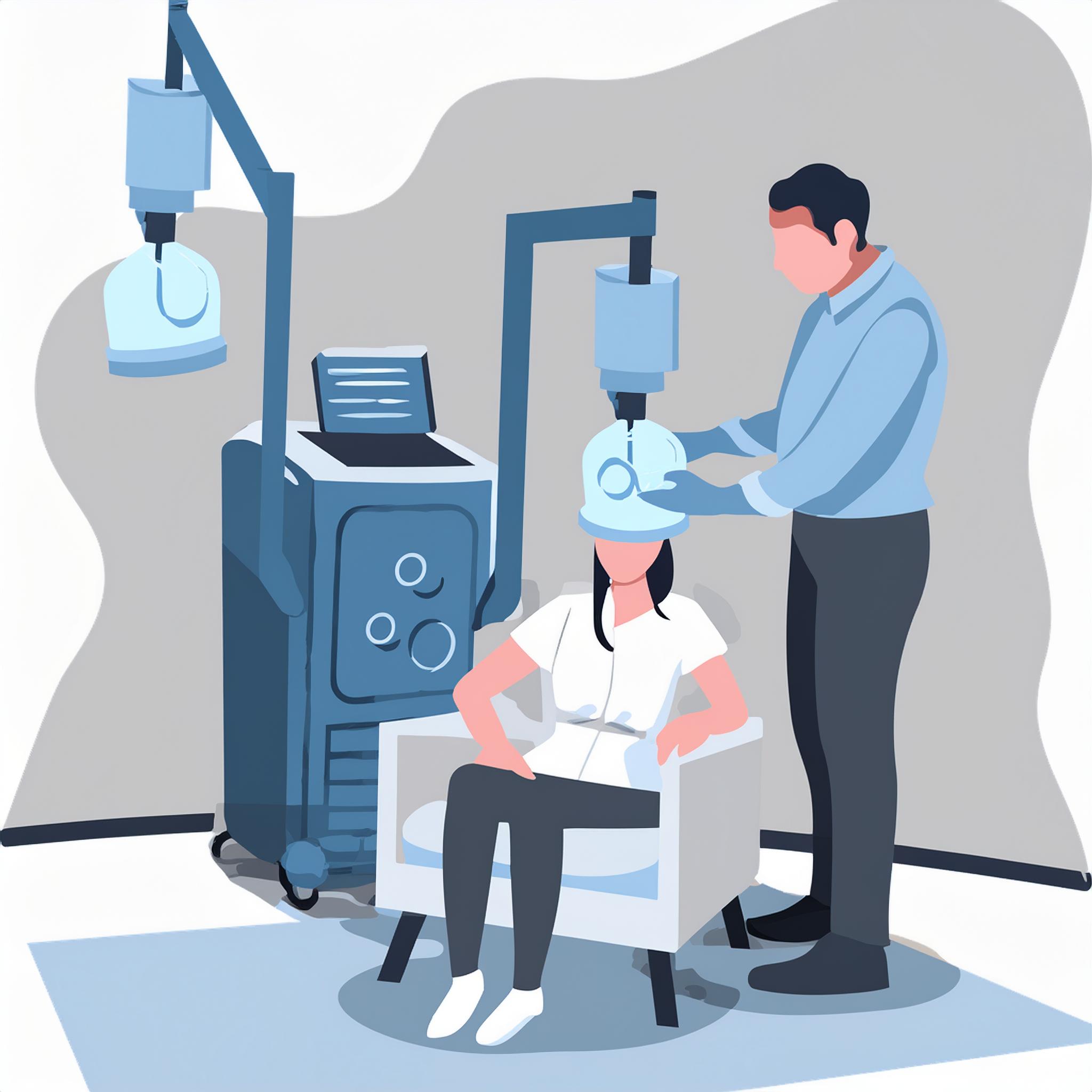
About 82% of patients who complete a full course of TMS show a clinically meaningful response and about 65% experience a full remission, meaning their symptoms go away completely
Fits in Your Schedule
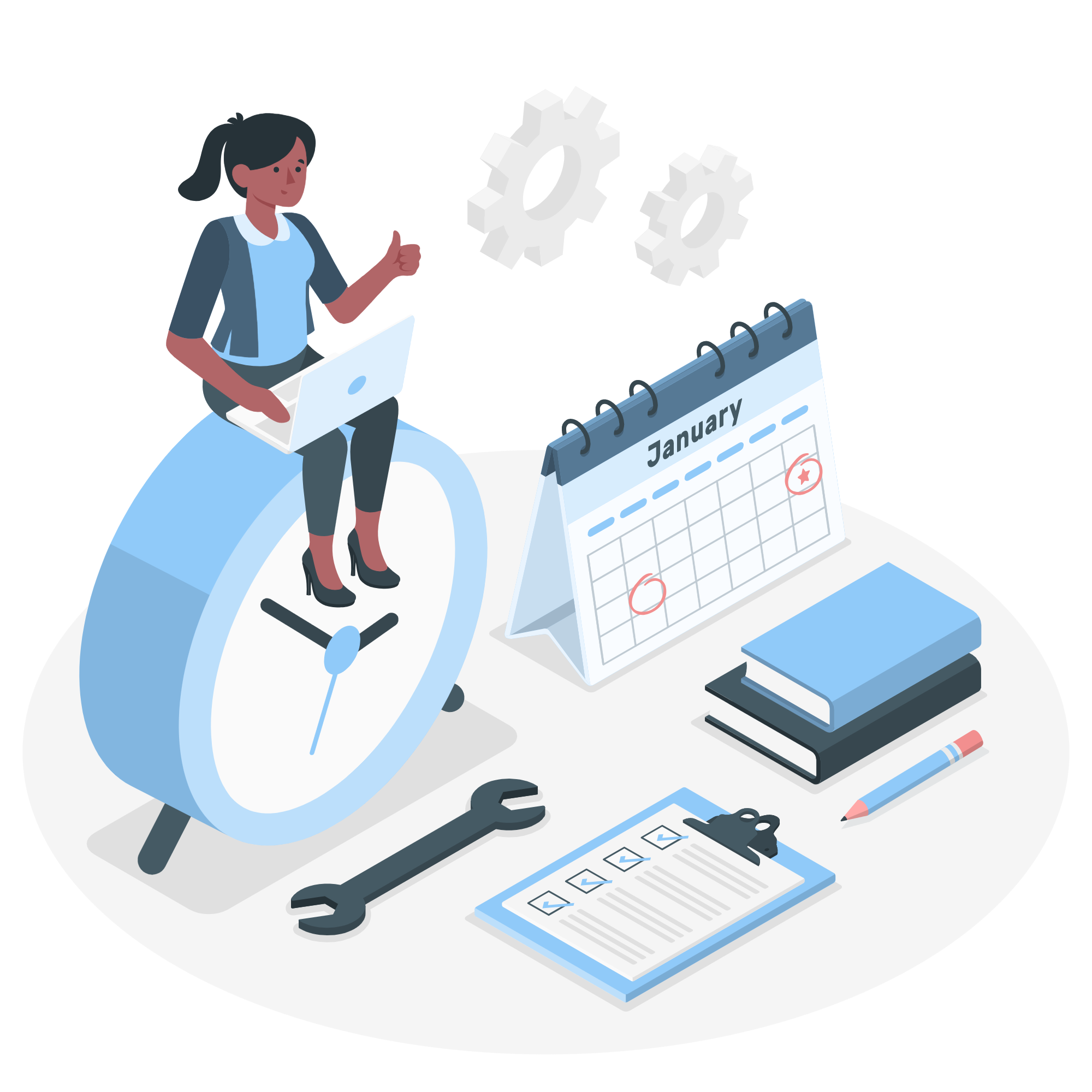
Sessions are about 20 minutes and you can drive to and from your appointments. The full course covered by insurance usually takes about 6-8 weeks to complete.
Covered by Insurance
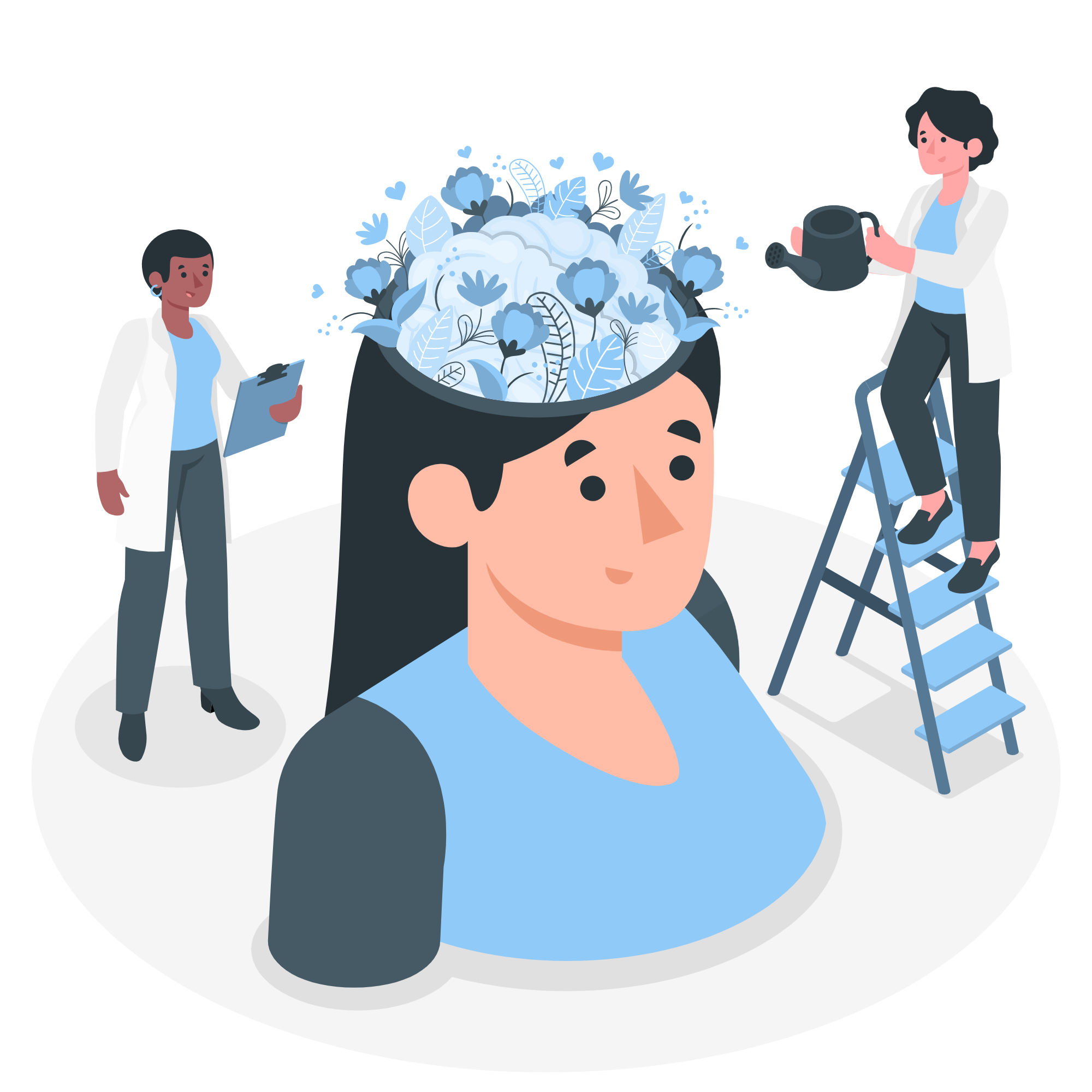
All major payers cover TMS treatment for Depression. If you've tried multiple antidepressants and therapy, there's a good chance your insurance covers it.
Meet Dr. Andrea Bennett, MD

Dr. Andrea Bennett is board-certified in Adult Psychiatry and board-eligible in Addiction Psychiatry. Dr. Bennett earned her medical degree at Tulane University School of Medicine. Her adult psychiatry residency training was completed at the University of Virginia Medical Center where she also participated in the Global Mental Health Track. Upon graduation, she served as Acting Medical Director for the Eating Disorders Unit at Robert Wood Johnson University Hospital and then Acting Medical Director of the Emergency Psychiatric Service at Hackensack Meridian Health, Jersey Shore Medical Center.
Located in Aurora
We are In-Network with
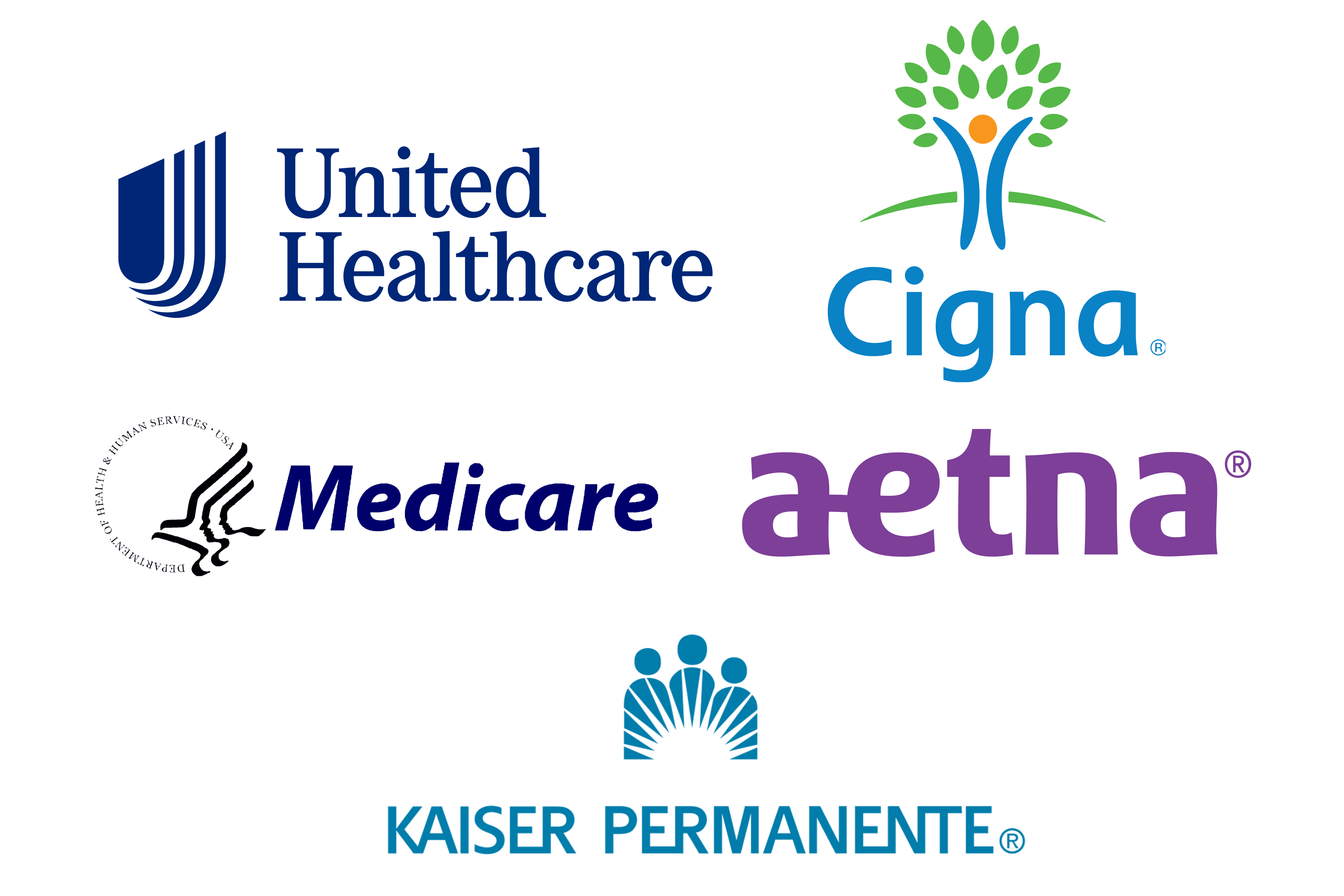
Not Sure If You Need Help?
Get instant results and feedback by taking this short quiz.
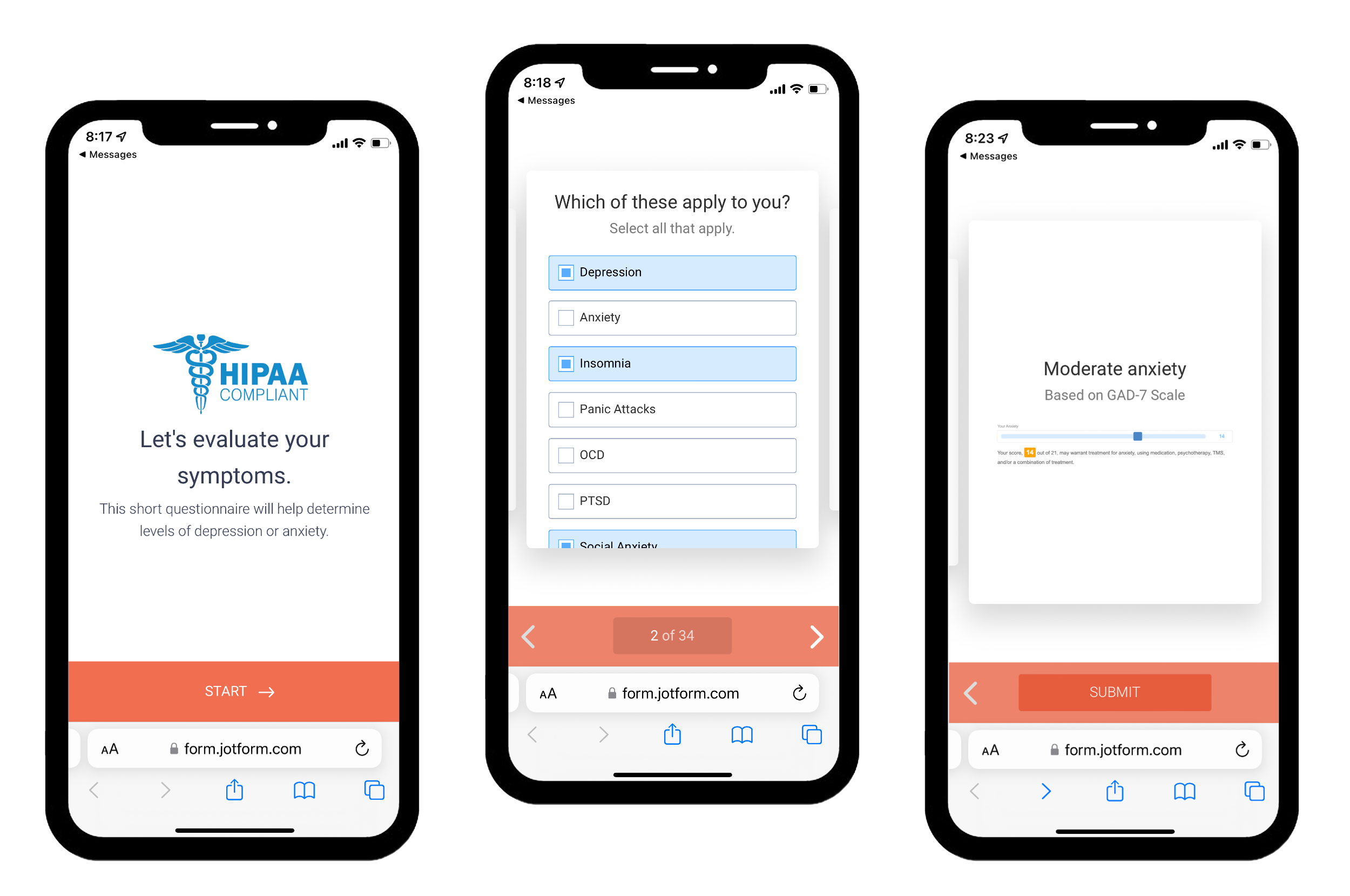
What is TMS?
TMS, or transcranial magnetic stimulation, is an alternative treatment for a variety of mental health conditions, but it is most commonly used to treat major depression and anxiety. This non-invasive therapy involves using a targeted magnetic field to stimulate under-active neurons in specific parts of the brain. TMS therapy typically takes about 6 weeks and is over 70% effective for providing long-term relief from depression symptoms.
How does TMS work?
Depression is caused by a lack of sufficient activity in the left dorsolateral prefrontal cortex, essentially the front left part of your brain. When this area is working properly, the entire brain lights up, creating an improved mood, working memory, and selective attention. TMS works by using magnetic fields to stimulate nerve cells in the brain. This is done by placing a magnetic coil near the head, which produces magnetic pulses that stimulate the nerve cells in the targeted area.
Is TMS for me?
TMS may be a good option for individuals who have not responded to traditional treatments for depression, such as medication and psychotherapy. However, it is important to speak with a mental health professional to determine if TMS is right for you.
What is TMS like? Do I feel anything?
During TMS treatment, you can sit comfortably and perform passive activities like reading a book, watching TV, or listening to music. Most patients report that TMS treatment feels like a gentle tapping sensation on the skull. Some patients experience a tingling or scalp sensitivity at the stimulation site during treatment, which can typically be mitigated by placing the device at a slightly different angle.
Are there any side effects?
The most commonly reported side effects of TMS therapy include mild headache, scalp discomfort during stimulation, and lightheadedness, all of which are typically resolved shortly after the treatment session or within the first week. Many patients report no side effects at all.
Is TMS covered by insurance?
Yes, TMS therapy is covered by almost all major insurance companies, depending on your insurance plan. Insurance plans can also have requirements for coverage, such as a prior history of antidepressant medication use or therapy treatments.
Business Hours
Mon: 8am - 5pm
Tues: 8am - 5pm
Wed: 8am - 5pm
Thurs: 8am - 5pm
Fri: 8am - 5pm
Sat/Sun: Closed

